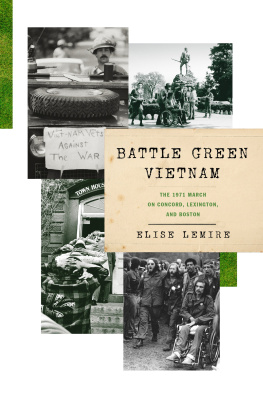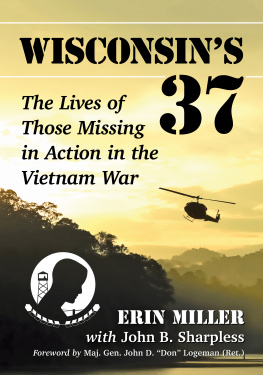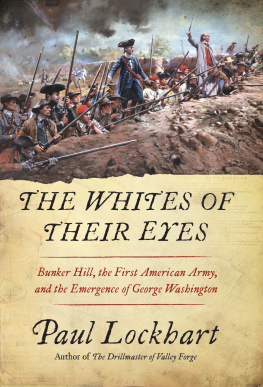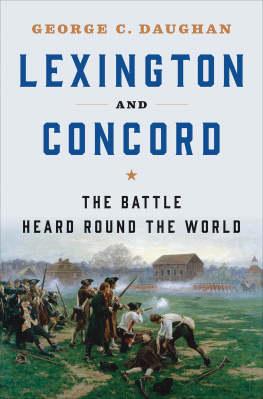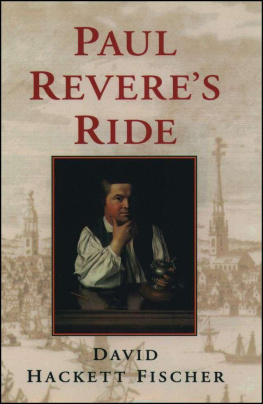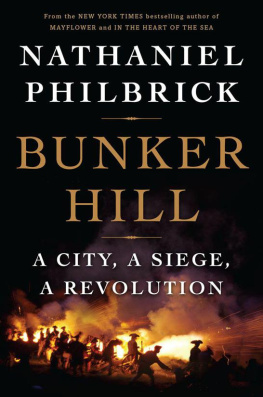Elise Lemire - Battle Green Vietnam: The 1971 March on Concord, Lexington, and Boston
Here you can read online Elise Lemire - Battle Green Vietnam: The 1971 March on Concord, Lexington, and Boston full text of the book (entire story) in english for free. Download pdf and epub, get meaning, cover and reviews about this ebook. City: Philadelphia, year: 2021, publisher: University of Pennsylvania Press, genre: History / Science. Description of the work, (preface) as well as reviews are available. Best literature library LitArk.com created for fans of good reading and offers a wide selection of genres:
Romance novel
Science fiction
Adventure
Detective
Science
History
Home and family
Prose
Art
Politics
Computer
Non-fiction
Religion
Business
Children
Humor
Choose a favorite category and find really read worthwhile books. Enjoy immersion in the world of imagination, feel the emotions of the characters or learn something new for yourself, make an fascinating discovery.
- Book:Battle Green Vietnam: The 1971 March on Concord, Lexington, and Boston
- Author:
- Publisher:University of Pennsylvania Press
- Genre:
- Year:2021
- City:Philadelphia
- Rating:4 / 5
- Favourites:Add to favourites
- Your mark:
Battle Green Vietnam: The 1971 March on Concord, Lexington, and Boston: summary, description and annotation
We offer to read an annotation, description, summary or preface (depends on what the author of the book "Battle Green Vietnam: The 1971 March on Concord, Lexington, and Boston" wrote himself). If you haven't found the necessary information about the book — write in the comments, we will try to find it.
In the spring of 1971, the largest mass arrest in Massachusetts history unfolded at a site nationally celebrated as the birthplace of freedom and democracy. With peace efforts at a standstill, the New England chapter of Vietnam Veterans Against the War had organized an event to rouse public support for their cause. Over the course of the long Memorial Day weekend, a band of more than two hundred young, fatigue-clad veterans sounded the alarm for peace and patriotism by marchingin reversethe path Paul Revere had taken two centuries earlier when he called on the American colonists to rise against their British oppressors.
Enacting the parts of colonial militiamen, the veterans set off in patrol formation along the famed Battle Road, a route calculated to take them past Concords Old North Bridge, onto Lexingtons Battle Green, and up to Bunker Hill. Determined to reanimate the patriotic sentiments expressed by the areas many Revolutionary War memorials, they revealed how far the nation had veered from its ideals by staging reenactments of the brutal atrocities they had witnessed and perpetrated in the name of freedom on the other side of the world. With an ironic twist, the fliers they distributed explained, our presence in Indochina as viewed by a native of an occupied village easily coincides with the British army in America. To the selectmen of the town of Lexington who ordered their mass arrest, the veterans were defiling spaces sacred to the nations Revolutionary past; to the hundreds of bystanders who fed, sheltered, and committed civil disobedience with them, they were an inspiration.
Elise Lemire tells this extraordinary story from the perspective of six men who played central roles in the events of May 1971. Based on more than one hundred interviews with participants and accompanied by nearly forty photographs and maps, Battle Green Vietnam demonstrates the power of mobilizing history, myth, and memorials to effect revolutionary change.
Elise Lemire: author's other books
Who wrote Battle Green Vietnam: The 1971 March on Concord, Lexington, and Boston? Find out the surname, the name of the author of the book and a list of all author's works by series.

